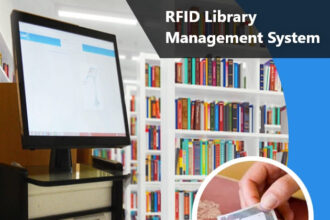Education is a continuous process that extends beyond the walls of a classroom. It is a lifelong journey that enriches us with knowledge, skills, and perspectives, helping us navigate through life’s challenges and opportunities. With the fast-paced changes in technology, the economy, and society, it becomes more critical to keep up with the latest trends and innovations by continuing your education.
Whether you are a recent graduate or an experienced professional, this blog will provide insights and inspiration to pursue your educational goals and unleash your full potential.
- Personal Growth
Continuing your education can help you develop a more profound sense of self-awareness. By learning new things, you can discover your strengths and weaknesses, identify your passions and interests, and explore your potential. This increased self-awareness can boost your self-confidence and self-esteem as you better understand your unique abilities and talents.
Continuing your education can broaden your intellectual horizons as you expose yourself to new ideas, perspectives, and knowledge. It can help you become more well-rounded and informed, capable of engaging in thoughtful discussions and making informed decisions.
- Professional Development
Continuing your education leads to professional development opportunities essential for career growth and success. It helps you stay current with industry trends, regulations, and standards, acquire new skills, and position yourself as a valuable team member.
Professional development can take many forms, such as attending conferences, seminars, or online courses, and it can help you stay competitive in the job market.
For example, pursuing an online MBA program is one option for continuing education and professional development. Many accredited universities offer programs like online MBA programs that allow individuals to balance work and education, making it an excellent choice for those who want to continue working while pursuing higher education. These programs offer a broad range of courses to help individuals develop various skills and knowledge in accounting, finance, marketing, management, and more.
- Increased Earning Potential
Employers are always looking for candidates with advanced degrees, specialized training, and relevant certifications. With the job market becoming more competitive every day, having additional education and training can give you a competitive edge over other candidates, making you a more desirable hire.
For instance, you have a bachelor’s degree in nursing and work as a registered nurse. You can become eligible for higher-paying jobs as a nurse practitioner or anesthetist by completing a master’s degree in nursing. The mean annual wage for nurse practitioners is $118,040, while that for nurse anesthetists is $202,470, as the U.S. Bureau of Labor Statistics predicted.
- Networking Opportunities
When you pursue further education, you can meet and connect with people from various industries, including experts and professionals in your field of study.
Networking opportunities can come in various forms, including workshops, conferences, seminars, and other events related to your chosen field of study. Attending these events allows you to connect with like-minded individuals, share ideas, and exchange valuable information. Through these connections, you can gain insights into the latest trends and developments in your industry, learn about job openings and career opportunities, and build relationships that can be valuable in the long run.
Furthermore, networking can also lead to potential collaborations, partnerships, and mentorship opportunities. When you meet people who share your interests and goals, you may have common goals that can be achieved through teamwork. Collaboration can help you to gain more significant projects, build your portfolio, and increase your professional standing.
Finally, networking opportunities can also help you to build your reputation and personal brand. When you attend events and engage with people in your field, you can demonstrate your expertise and showcase your skills. Through these interactions, you can build your brand and establish yourself as an authority in your industry.
- Improved Critical Thinking
Higher education exposes you to new and challenging concepts, ideas, and theories. Studying these subjects, you will learn to evaluate and analyze information objectively, identify assumptions and biases, and apply evidence-based reasoning to solve complex problems. Moreover, by continuing your education, you will develop a greater ability for critical thinking, which is crucial in all aspects of life.
Continuing your education enables you to develop a more comprehensive and diverse perspective on the world. You will learn to appreciate and understand the world’s complexities through exposure to different cultures, philosophies, and worldviews. You will also learn to challenge your assumptions, confront biases, and see issues from multiple angles. This enhanced perspective will enable you to make more informed decisions and judgments based on a deeper understanding of the world.
- Enhanced Creativity
Individuals are exposed to new and diverse perspectives when pursuing further education, which can broaden their minds and stimulate their creativity. They are exposed to different cultures, traditions, and lifestyles, which can challenge their preconceived notions and expand their thinking. This exposure can help them develop new and unique ideas and solutions to problems they may not have considered before.
Continuing education can help individuals learn new skills and techniques to apply to their work. For example, if a graphic designer takes a course in animation, they can integrate this new skill into their design work, creating unique and visually appealing designs.
- Improved Communication Skills
Continuing your education can improve your communication skills in various ways, such as,
- As you learn more about different subjects and areas of study, you can engage in more meaningful conversations with others. You will also be better equipped to express your ideas and opinions clearly and concisely, which is essential in many professional settings.
- Many programs require group work and collaboration, which can help you become a better listener, collaborator, and team player. You will also have the chance to practice giving and receiving feedback, a valuable workplace skill.
- Many courses require presentations or public speaking assignments, which can help you develop your ability to articulate your thoughts and ideas in front of others. It can be a valuable skill in many careers, as well as in personal life.
Conclusion
Continuing your education can bring many benefits and opportunities that can enrich your personal and professional life. From increased earnings potential to expanded knowledge and skill sets, pursuing further education can open doors to new experiences and career paths. Additionally, continuing education can provide a sense of fulfillment and accomplishment as you challenge yourself and learn new things.













